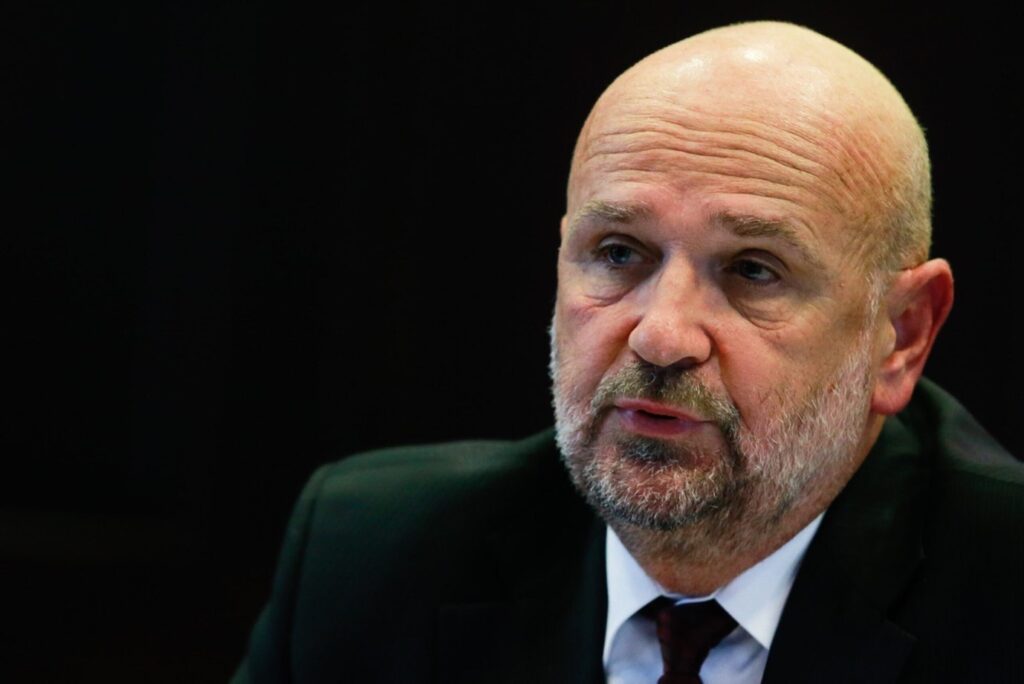“The Supreme Court has announced in advance that Masleša will win the lawsuit. This is an unprecedented scandal. Let it be known that the old communists still control the judiciary. And worst of all, this comes from a post published by the Supreme Court itself. And they are not even embarrassed by it,” journalist Igor Pirkovič commented on the Supreme Court itself announcing on Twitter that Judge Branko Masleša is going to file a lawsuit against the journalists who have been dealing with the question of his diploma thesis in recent days. Masleša has still not provided a clear answer to any of the questions related to this topic, and the explanation of the Faculty of Law in Sarajevo was also not all that clear. Was the diploma really destroyed during the war in Bosnia and Herzegovina, and what was actually destroyed if the diploma never actually existed at all?
In recent days, there has been a lot of talk about judge Branko Masleša and his diploma – as it is not entirely clear whether it actually exists or not. Namely, no information has been found in the publicly available data about Masleša’s supposed graduation from the Faculty of Law in Sarajevo in1975, so we expected that the matter would be clarified by the Supreme Court or by Masleša himself. But while we were waiting for answers, several interesting things happened; however, they still do not actually answer the simple question of where is Masleša’s diploma.
The magazine Demokracija (Democracy) reported that Masleša supposedly explained that his diploma was destroyed during the war in Bosnia and Herzegovina – which is not the best excuse. Even if practically everything was destroyed in Sarajevo during the war – meaning, the diploma thesis, as well as the diploma itself, and all possible records of it – he certainly had to provide his diploma or at least some proof of it at least once when he tried to get a job. A document must therefore exist, unless he was employed just because he asked nicely. The web portal Prava.si published the answer of the University of Sarajevo, which wrote, in very broken English, that Masleša did, in fact, graduate there, but that their programme did not require him to write a diploma thesis, as he simply graduated when he passed the last exam. There was no name signed under this explanation, nor a date added – and much less any proof. We turned to the University with additional questions – among other things, we wanted to know what level of study Masleša had completed. We also asked them for proof, but we have not yet received a response. Of course, the question arises as to what was really destroyed during the war – given that the thesis apparently does not even exist.
Meanwhile, the Supreme Court responded to the recent allegations on Twitter. They wrote that the issue of the existence of judges’ diplomas, considering the legally prescribed election procedure, in which the fulfilment of the conditions for holding a judicial position is assessed, is superfluous. “The Supreme Court judge will file a lawsuit regarding the published untruths. The amount of compensation will be donated to charity,” they announced – and they obviously already know what the outcome of the lawsuit will be in advance. But the professor and constitutional lawyer Boštjan M. Zupančič believes that it will not be this simple. “It would be better for Masleša to not press this lawsuit (and I do not think he is actually going to do it),” he wrote, adding that a priori, the burden of proof will fall on him. “Diploma is a public document (presumption of validity), and since the burden of proof would fall on the plaintiff, it would be exceedingly easy for the defendant to prove that the plaintiff is wrong,” he explained.
“Only in Slovenia can the national media outlet RTV Slovenia not even care about whether a Supreme Court judge – Masleša – has a diploma or whether he is just trained in tailoring… And only in our country is it possible that the Supreme Court judge can threaten journalists, and the Slovene Association of Journalists stays quiet and does not respond to this in any way,” director of the Government Communication Office, Uroš Urbanija, pointed out. Namely, just a little while ago, the national television went after MP Branko Simonovič, who – unlike Masleša – actually showed proof of his diploma, but journalist Eugenia Carl was still not satisfied. Interestingly, the national television found the issue of an MP’s diploma to be so very important, while the information about the education of a Supreme Court judge does not seem to matter to them at all.
Sara Kovač


